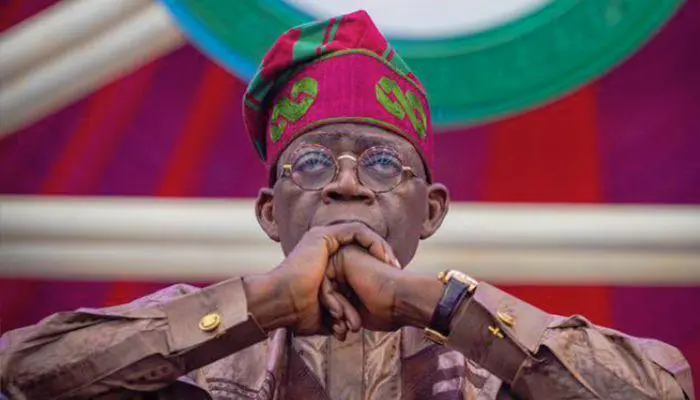POLITICS
Buhari’s Death Reshapes Political Landscape Ahead of 2027 Elections

The remains of former Nigerian President Muhammadu Buhari were laid to rest on Tuesday in his hometown, Daura, Katsina State. The solemn ceremony drew dignitaries from across the country and beyond, as the nation mourned the loss of a key political figure who served both as a military ruler and as a democratically elected president under the All Progressives Congress (APC).
Buhari’s death marks a significant moment in Nigeria’s political timeline, especially as the APC and President Bola Tinubu gear up for the 2027 general elections—now without the influence of a man widely seen as the party’s rallying point in the North.
Political Shifts and Emerging Alliances
Buhari’s passing coincides with the emergence of a formidable political coalition under the African Democratic Congress (ADC), which includes heavyweights like former Vice President Atiku Abubakar, Peter Obi, Nasir El-Rufai, and Rotimi Amaechi. United by a shared objective to unseat the ruling APC, the opposition coalition is gaining momentum.
While Buhari’s loyal northern base delivered consistent support—estimated at 12 million votes in past elections—analysts predict his absence could fragment this support, potentially weakening the APC’s grip in key regions.
APC Insists It Will Survive Buhari’s Absence
Despite concerns, APC chieftain Wahab Owokoniran believes the party remains in capable hands. Speaking during a live Channels Television broadcast of Buhari’s burial, Owokoniran acknowledged Buhari’s political weight but expressed confidence in Tinubu’s strategic prowess.
“Tinubu has been building political bridges for nearly four decades,” he said. “Yes, Buhari’s loss is significant, but Tinubu will consolidate his networks. Nature abhors a vacuum—another northern rallying figure will eventually emerge.”
Northern Influence and the ADC Strategy
Salihu Lukman, a former APC chieftain and now a member of the ADC coalition, argued that Buhari’s dominance made many northern politicians complacent. Without his endorsement power, he said, politicians must now engage voters directly with humility and real connection.
“With Buhari gone, elections won’t be won by proximity to power alone. Politicians must now win the hearts of the people, especially in the North,” Lukman said.
Analyst Warns of Crisis Within APC
Nduka Odo, a public affairs analyst at Peaceland University, Enugu, warned that the alignment of prominent former APC figures within the ADC could signal deeper fractures within the ruling party.
He cited past tensions, including the perceived rift between Buhari and Tinubu during the 2023 primaries, and noted that groups like the CPC and newPDP that formed the APC coalition have largely moved on—leaving Tinubu and his ACN loyalists to steer the ship.
“Buhari’s death exposes an already widening crack within the APC,” Odo said. “If the party fails to retain Buhari’s northern followers or manage internal power struggles—like the speculation over VP Shettima’s position—it could face a real electoral disaster.”
He also noted that poverty and disenchantment among Buhari’s northern supporters, many of whom feel let down, could further erode APC’s base.
“There were even videos of celebration in parts of the North after Buhari’s death was announced—an unfortunate but telling sign of disillusionment.”
Odo added that for APC to survive, it must maintain Buhari’s legacy as a symbolic figure, even posthumously—otherwise, it risks losing a major political advantage.
Conclusion
Buhari’s political legacy looms large, but the future of the APC will depend on its ability to adapt, manage internal divisions, and sustain its northern support base. With the opposition coalescing and public sentiment shifting, the road to 2027 promises to be fiercely contested.
FOLLOW US

















![Top Nigeria Newspaper Headlines Today 25th June 2024 [Tuesday] 87 Nigeria Newspaper Headlines](https://nigerianews247.com/wp-content/uploads/2024/04/Nigeria-Newspaper-Headlines-80x80.png)

![[VIDEO] Tinubu Stumbles while Boarding Presidential Parade Vehicle at Eagles Square 90 Tinubu Stumbles while Boarding Presidential Parade Vehicle at Eagles Square](https://nigerianews247.com/wp-content/uploads/2024/06/Tinubu-Stumbles-while-Boarding-Presidential-Parade-Vehicle-at-Eagles-Square-80x80.jpeg)


You must be logged in to post a comment Login